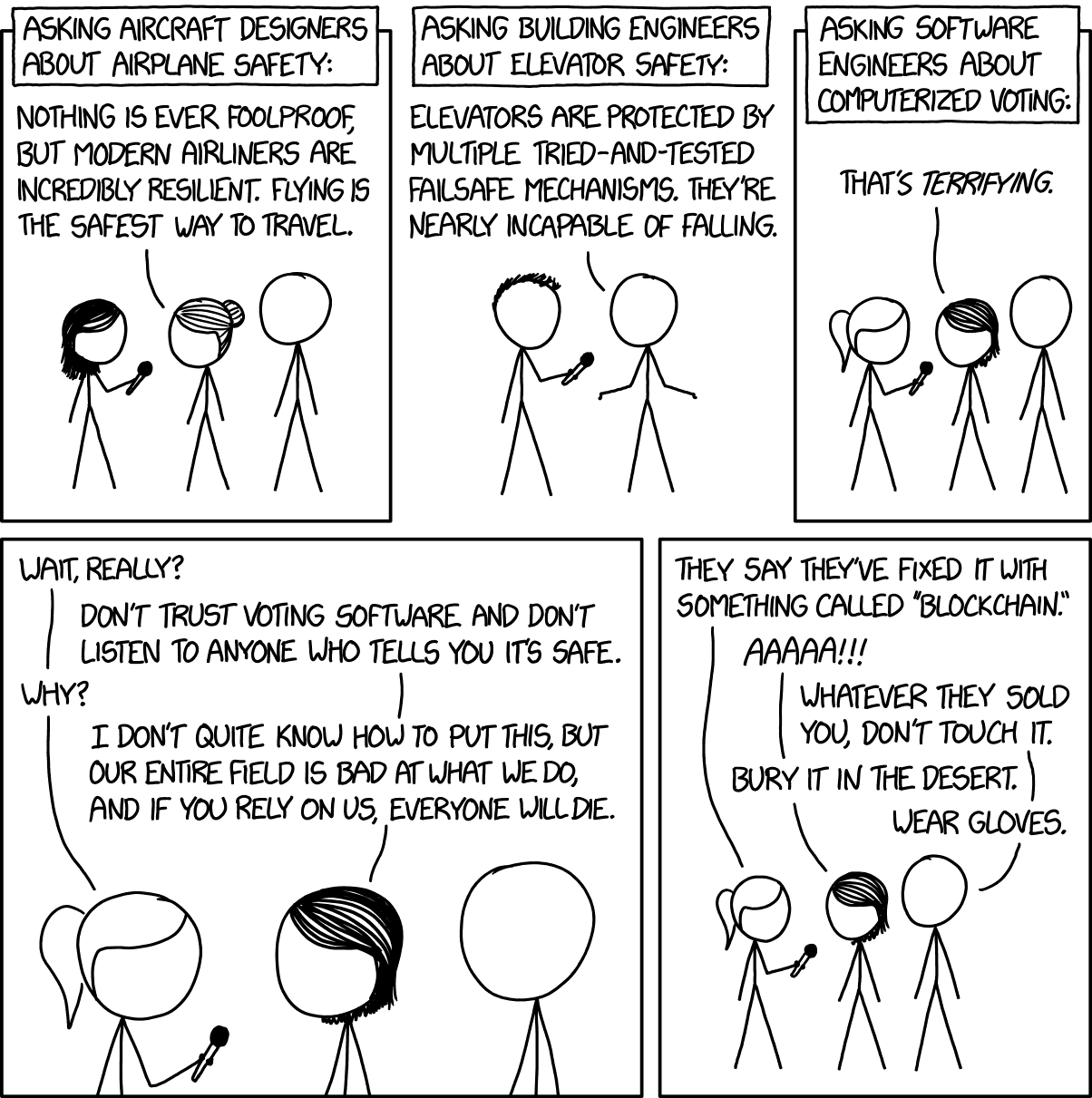http://arstechnica.com/security/2016...board-systems/
There are vulnerabilities at numerous levels of the election system and it would seem that at least some are being actively exploited. Who's responsible? How far will they go? And how should/will the US respond when Trump wins the election with Putin's help?




 Reply With Quote
Reply With Quote






